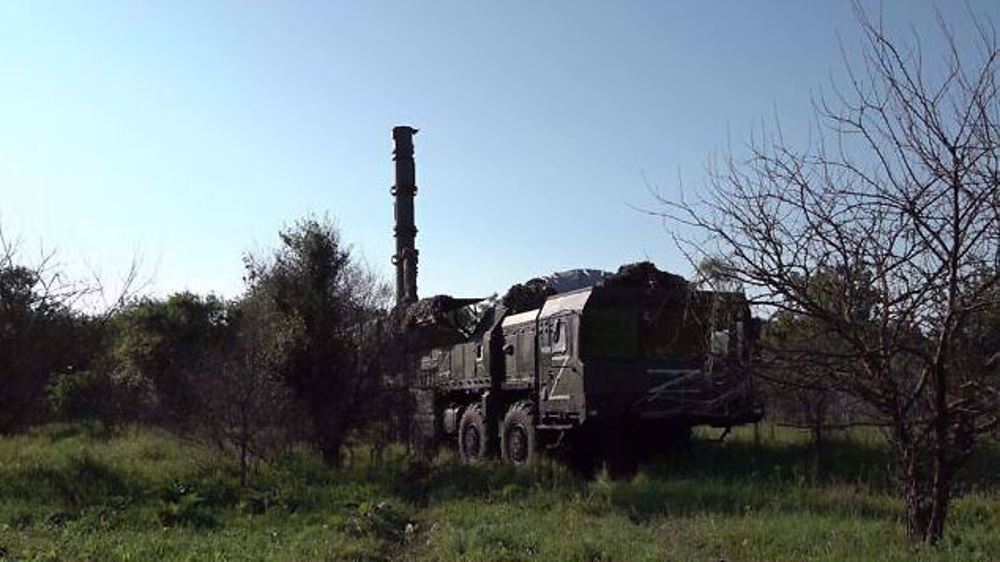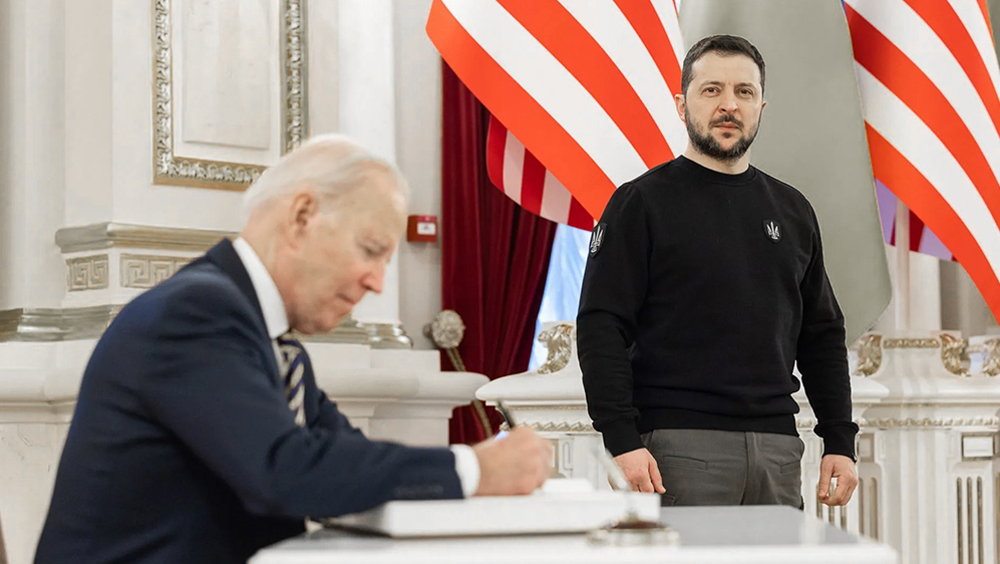Russia warns of global conflict if US withdraws from INF treaty
Russia has warned that the potential scrapping of the Cold War-era nuclear arms agreement by the United States may lead to a global conflict after a proposal by Moscow for preserving the pact was rejected in a United Nations vote.
Moscow had submitted a draft resolution to the United Nations General Assembly to preserve the Intermediate-Range Nuclear Forces (INF) Treaty with Washington, following Washington's decision to unilaterally withdraw from the nuclear pact.
The Russian Foreign Ministry said in a statement on Saturday that the UN had failed to vote in favor of the proposal.
"A new blow has been dealt on the global architecture of security and stability. Now, with the collapse of the INF treaty, several global regions could be plunged into the or even into a direct confrontation," it said.
The statement came one day after the UN rejected the Russian-drafted resolution which would have called on Moscow and Washington to strengthen compliance for the INF treaty.
Over the past months, the White House has been repeatedly accusing the Kremlin of violating the INF. Moscow, for its part, strongly rejected such allegations, calling them unfounded.
On Thursday, Russian President Vladimir Putin said Washington’s decision to pull out of the milestone pact “is one step towards an arms race.”
Putin said that his country could easily develop and deploy land-based intermediate-range missiles if the United States carries out a threat to withdraw from the treaty.
He also warned that the US decision, which may even “ruin” arms control system, “causes serious concern” and might have “very negative consequences and will noticeably weaken regional and global security.”
US President Donald Trump said on October 20 that Washington would withdraw from the INF, which was signed towards the end of Cold War in 1987 by then President Ronald Reagan and Soviet leader Mikhail Gorbachev.
Gorbachev said at the time that US decision to ditch the Cold War-era nuclear weapons agreement with Russia could lead to the collapse of the current non-proliferation mechanism.
The treaty banned all land-based missiles with ranges of 310 to 3,420 miles and included missiles carrying both nuclear and conventional warheads. The original ban between Moscow and Washington led to the elimination of 2,692 missiles.
The Cold War-era treaty, which rid Europe of land-based nuclear missiles, has also come into question against a backdrop of renewed tensions between the West and Russia.
Moscow’s relations with the West remain tense over the Ukrainian crisis, the foreign-sponsored war in Syria and the allegations of Russian interference in the US presidential poll in 2016.
Diplomat discourages recourse to pressure, intimidation, confrontation against Iran
UN: 2024 deadliest year for aid workers amid genocide in Gaza
Gaza health official warns of hospital shutdowns within 48 hours
Israel kills 5 more paramedics in southern Lebanon: Health ministry
Iran to launch ‘new, advanced’ centrifuges in response to IAEA resolution: AEOI
Yemen fires hypersonic missile at Israeli airbase
VIDEO | New Delhi chokes under toxic smog as air quality remains at hazardous levels
VIDEO | Press TV's news headlines










 This makes it easy to access the Press TV website
This makes it easy to access the Press TV website